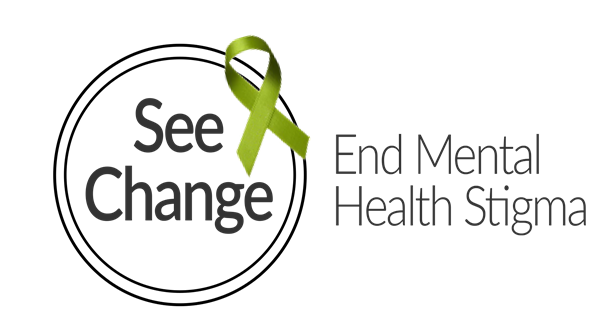Mental health stigma and primary care
Stigma remains a barrier to timely mental health recovery for many. When a person is stigmatised about their mental health difficulties, a delay in accessing treatment often results[i]. While thankfully open discussion around mental health issues in Irish society has become far more commonplace in recent years, stigma remains a frustratingly intractable feature of many people’s experiences[ii].
Stigma exists at different levels - from within ourselves as individuals (self-stigma), to within our communities and society at large. Research indicates that mental health stigma continues to occur across all healthcare sectors, including at primary care level[iii]. Understanding and being vigilant to the damaging impact of stigma is a responsibility that all healthcare professionals should share.
The role of the GP
We know that for most people with mental health difficulties the first step to recovery starts with a visit to their GP. Indeed, in St Patrick’s Mental Health Services’ 2018 annual attitudinal survey of 500 adults, 77% of those surveyed identified their GP as who they would turn to if they had a mental health concern about themselves or someone else[iv]. The GP has a key role not just in providing crucial care and treatment, but in helping to destigmatise mental health difficulties. In their 2013 briefing paper on mental health and primary care, Mental Health Reform highlighted the role of general practitioners as both the ‘gatekeeper’ to specialised mental health services where they’re required, and in providing mental healthcare at primary care level including after discharge from mental health services. The paper further highlights that this work in itself is destigmatising for people with higher level mental health needs - “since people with long-term conditions can get their support needs met through the same primary health care providers as others in their community”[v].
The nature of stigma
At the intrapersonal level, stigma impacts us when we internalise negative and inaccurate ideas and perceptions about mental illness leading to ‘self-stigma’. This can contribute to decreased self-esteem and confidence, and social withdrawal[vi]. Stigma about seeking help for a mental health difficulty has also been cited as being greater for some than stigma experienced about the difficulty itself[vii]. Stigmatisation also manifests at a public level – interpersonally, for example where someone uses a derogatory label about another, and structurally, for example when an organisation discriminates against someone due to their mental health difficulties. Stigma can impact a person’s engagement with health services at any of these levels.
Where mental health stigma exists within healthcare settings, various factors have been found to be relevant including lack of awareness or skills, and ‘therapeutic pessimism’ regarding recovery[viii]. An American study of 166 healthcare providers (42.2% primary care providers) within the Veteran’s Affairs (VA) healthcare system, found stigma was associated with beliefs about treatment adherence and decreased the likeliness of the provider referring on for specialist services[ix].
Interestingly the study also found that – “Stigma was greater among those providers who were relatively less comfortable with using mental health services themselves”[x]. This highlights the nature of stigma as both ‘inward and outward-facing’ within the healthcare sector as a workplace – that is to say that stigmatisation also has “impacts for health professionals’ own willingness to seek help or disclose a mental health problem”[xi]. Thus, stigma at the individual level can contribute to stigma at a systemic level, as well as impacting the mental health needs of healthcare providers themselves.
What makes a difference?
SeeChange the National Mental Health Stigma Reduction Partnership promotes general approaches that can be taken to reduce stigma and discrimination at an individual level, including education on mental health conditions and considering the language that is used in discussing mental health issues. They have further identified the workplace as a key focal point for social change with initiatives and resources developed for use there. The UK national anti-stigma campaign ‘Time to Change’ espouse a similar approach but also ran a targeted programme in recent years focussed on the GP surgery as an important locale for change[xii].
As regards the healthcare setting, including the GP surgery, research from Canada indicates positive outcomes for stigma reduction approaches that are both ‘outward and inward-facing’ – namely creating “an organisational culture that promotes both staff health and well-being and is committed to combating stigma in patient care”[xiii]. Particular strategies supported by research include skills and awareness-training that incorporate ‘person-first’ behaviours and ‘myth-busting’, emphasizing recovery from mental health difficulties, and implementing recovery-oriented models of care[xiv]. ‘Social contact’ learning approaches, where a person with lived experience contributes to health professionals training and or anti-stigma programmes has also been found to be particularly effective in reducing stigma.
Resources and supports available
SPMHS has highlighted stigma reduction as a key need to progress towards a mentally healthier Ireland. Over 2017, SPMHS’ public education campaign ‘Walk in My Shoes’ ran a multimedia campaign – ‘Still Just Me’, which addressed how stigma can manifest in different ways and with regard to different mental health conditions. ‘Still Just Me’ included powerful accounts of the impact of mental health stigma shared by those with lived experience. SPMHS strives to support GPs’ needs as regards mental health awareness and skills through our GP programme, which includes online mental health CPD films. We are always open and interested also to hear from those in our GP network with your ideas and thoughts.
Further information
References
[1] Knaak, S., Mantler, E., Szeto, A. (2017) Mental illness-related stigma in healthcare: Barriers to access and care and evidence-based solutions. Healthcare Management Forum (2017) Vol. 30 (2) 111-116.
doi: 10.1177/0840470416679413
< https://www.ncbi.nlm.nih.gov/pmc/articles/PMC4363991/pdf/nihms661245.pdf> [Accessed 13/8/18]
[1] St. Patrick’s Mental Health Services (2017) Mental Health Survey Reveals Extent and Effect of Stigma [press release], 7 October, 2017. https://www.stpatricks.ie/media-centre/news/2017/october/mental-health-survey-reveals-extent-and-effects-of-stigma [Accessed 13/8/18]
[1] Rojas Vestorte, A., Silva Ribeiro, W., Jaen, D., Jorge, M., Evans-Lacko, S., de Jesus Mari, J. (2018) Stigmatizing attitudes of primary care professionals towards people with mental disorders: A systematic review. The International Journal of Psychiatry in Medicine Vol 53 (4) 317-338. <http://journals.sagepub.com/toc/ijpb/53/4 > [Accessed 13/8/2018] doi.org/10.1177/0091217418778620
[1] St. Patrick’s Mental Health Services (2018) 2018 Mental Health Survey [publishing pending]
[1] Mental Health Reform (2013) Mental Health in Primary Care in Ireland: A briefing paper. (p.8) Dublin, Mental Health Reform.
[1] SeeChange – The National Mental Health Stigma Reduction Partnership What is Stigma? A guide to understanding mental health stigma Information booklet https://seechange.ie/wp-content/uploads/2018/02/See-Change-What-is-Stigma-A5-brochure-HR.pdf Accessed:15/8/18
[1] Komiti, A., Judd, F., Jackson, H. (2018) The influence of stigma and attitudes on seeking help from a GP for mental health problems: A rural context. Social Psychiatry and Psychiatric Epidemiology 41 (9): 738-45. DOI: 10.1007/s00127-006-0089-4
https://www.researchgate.net/publication/6964550_The_influence_of_stigma_and_attitudes_on_seeking_help_from_a_GP_for_mental_health_problems_A_rural_context [Accessed 16/8/18]
[1] Knaak, S. Mantler. E., Szeto, A. (2017, p.112) Mental illness-related stigma in healthcare: Barriers to access and care and evidence-based solutions. Healthcare Management Forum (2017) Vol. 30 (2) 111-116. doi: 10.1177/0840470416679413
https://www.ncbi.nlm.nih.gov/pmc/articles/PMC4363991/pdf/nihms661245.pdf [Accessed 13/8/18]
[1] Corrigan, P., Mittal, D., Reaves, C.M., Haynes, T.F., Han, X., Morris, S., Sullivan, G. (2014) Mental health and primary health care decisions. Psychiatry Research Aug 15, 218(0): 35-38. doi: 10.1016/j.psychres.2014.04.028 https://www.ncbi.nlm.nih.gov/pmc/articles/PMC4363991/ [Accessed 13/8/18]
[1] Ibid, p.4.
[1] Knaak, S. Mantler. E., Szeto, A. (2017, p.112) Mental illness-related stigma in healthcare: Barriers to access and care and evidence-based solutions. Healthcare Management Forum (2017) Vol. 30 (2) 111-116.
doi: 10.1177/0840470416679413
https://www.ncbi.nlm.nih.gov/pmc/articles/PMC4363991/pdf/nihms661245.pdf [Accessed 13/8/18]
[1]O’Hara, M. (2013) Anti-stigma project helps GPs treat people with mental health problems. The Guardian, 29th May, 2013. https://www.theguardian.com/healthcare-network/2013/may/29/time-to-change-raises-awareness-mental-health [Accessed 15/8/2018]
[1] Knaak, S. Mantler. E., Szeto, A. (2017, p.114) Mental illness-related stigma in healthcare: Barriers to access and care and evidence-based solutions. Healthcare Management Forum (2017) Vol. 30 (2) 111-116. doi: 10.1177/0840470416679413
https://www.ncbi.nlm.nih.gov/pmc/articles/PMC4363991/pdf/nihms661245.pdf [Accessed 13/8/18]
[1][1] Ibid (p.112)
[i] Knaak, S., Mantler, E., Szeto, A. (2017) Mental illness-related stigma in healthcare: Barriers to access and care and evidence-based solutions. Healthcare Management Forum (2017) Vol. 30 (2) 111-116.
doi: 10.1177/0840470416679413
https://www.ncbi.nlm.nih.gov/pmc/articles/PMC4363991/pdf/nihms661245.pdf [Accessed 13/8/18]
[ii] St. Patrick’s Mental Health Services (2017) Mental Health Survey Reveals Extent and Effect of Stigma [press release], 7 October, 2017. https://www.stpatricks.ie/media-centre/news/2017/october/mental-health-survey-reveals-extent-and-effects-of-stigma [Accessed 13/8/18]
[iii] Rojas Vestorte, A., Silva Ribeiro, W., Jaen, D., Jorge, M., Evans-Lacko, S., de Jesus Mari, J. (2018) Stigmatizing attitudes of primary care professionals towards people with mental disorders: A systematic review. The International Journal of Psychiatry in Medicine Vol 53 (4) 317-338. <http://journals.sagepub.com/toc/ijpb/53/4 > [Accessed 13/8/2018] doi.org/10.1177/0091217418778620
[iv] St. Patrick’s Mental Health Services (2018) 2018 Mental Health Survey [publishing pending]
[v] Mental Health Reform (2013) Mental Health in Primary Care in Ireland: A briefing paper. (p.8) Dublin, Mental Health Reform.
[vi] SeeChange – The National Mental Health Stigma Reduction Partnership What is Stigma? A guide to understanding mental health stigma Information booklet https://seechange.ie/wp-content/uploads/2018/02/See-Change-What-is-Stigma-A5-brochure-HR.pdf Accessed:15/8/18
[vii] Komiti, A., Judd, F., Jackson, H. (2018) The influence of stigma and attitudes on seeking help from a GP for mental health problems: A rural context. Social Psychiatry and Psychiatric Epidemiology 41 (9): 738-45. DOI: 10.1007/s00127-006-0089-4
https://www.researchgate.net/publication/6964550_The_influence_of_stigma_and_attitudes_on_seeking_help_from_a_GP_for_mental_health_problems_A_rural_context [Accessed 16/8/18]
[viii] Knaak, S. Mantler. E., Szeto, A. (2017, p.112) Mental illness-related stigma in healthcare: Barriers to access and care and evidence-based solutions. Healthcare Management Forum (2017) Vol. 30 (2) 111-116. doi: 10.1177/0840470416679413
https://www.ncbi.nlm.nih.gov/pmc/articles/PMC4363991/pdf/nihms661245.pdf [Accessed 13/8/18]
[ix] Corrigan, P., Mittal, D., Reaves, C.M., Haynes, T.F., Han, X., Morris, S., Sullivan, G. (2014) Mental health and primary health care decisions. Psychiatry Research Aug 15, 218(0): 35-38. doi: 10.1016/j.psychres.2014.04.028 https://www.ncbi.nlm.nih.gov/pmc/articles/PMC4363991/ [Accessed 13/8/18]
[x] Ibid, p.4.
[xi] Knaak, S. Mantler. E., Szeto, A. (2017, p.112) Mental illness-related stigma in healthcare: Barriers to access and care and evidence-based solutions. Healthcare Management Forum (2017) Vol. 30 (2) 111-116.
doi: 10.1177/0840470416679413
https://www.ncbi.nlm.nih.gov/pmc/articles/PMC4363991/pdf/nihms661245.pdf [Accessed 13/8/18]
[xii]O’Hara, M. (2013) Anti-stigma project helps GPs treat people with mental health problems. The Guardian, 29th May, 2013. https://www.theguardian.com/healthcare-network/2013/may/29/time-to-change-raises-awareness-mental-health [Accessed 15/8/2018]
[xiii] Knaak, S. Mantler. E., Szeto, A. (2017, p.114) Mental illness-related stigma in healthcare: Barriers to access and care and evidence-based solutions. Healthcare Management Forum (2017) Vol. 30 (2) 111-116. doi: 10.1177/0840470416679413
https://www.ncbi.nlm.nih.gov/pmc/articles/PMC4363991/pdf/nihms661245.pdf [Accessed 13/8/18]
[xiv][xiv] Ibid (p.112)
Continue to…
Annual GP survey reveals depression is most commonly referred mental health difficulty



